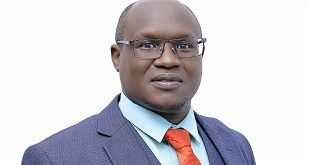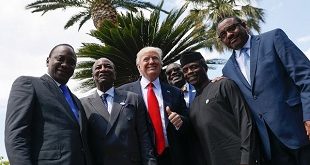
By Agnes E. Nantaba
Inside the political legacy of the First Lady
With her arresting profile, large warm eyes, bright white teeth and jet-black hair, Janet Museveni in 1986 came across as an engaging first lady. She was young; just 37-years old and her husband, President Yoweri Museveni, had just taken power. In an era when women did their hair in perms and wet-look curls, Janet; as she has come to be fondly referred to, went African, keeping hers natural, combed low at the back and rising to a sharp point over the forehead.
The style caught on, becoming the chosen style of the Ugandan power woman – the `Janet cut’. Usually combined with a broad beaded necklace, it became the mark of the emancipated women; strong enough to create social impact.
Janet who recently announced her decision to quit active politics is now 66 years old. After clocking 29 years in State House, she is Uganda’s longest serving first lady. For most of this time, it seemed she was contented with staying behind the scenes to support her politically tireless husband. She had founded and led the Uganda Women’s Effort to Save Orphans (UWESO); until 2005 when she decided to join him in seeking political office.
.gif)
Her decision was unprecedented. Although Uganda had six presidents before Museveni from 1962 when it attained independence from the British, the typical responsibilities for first ladies throughout this post-colonial period were of supportive-nurturing roles. Therefore setting aside the supportive role to her husband, in November 2005, meant a realisation of a new Janet. At that time, she announced her contesting the Ruhaama County (Ntungamo District) Parliamentary seat in the February 2006 general elections.This made her the first sitting Ugandan first lady to join active politics.
It possibly was not a simple decision. It was also one of the most intriguing decision from the humble and faith driven first lady. The question then was why she had opted for Ruhaama of all constituencies yet she is a born of Kajara county, Ntungamo district. The other was why she was moving against Augustine Ruzindana; the once very powerful and respected Inspector General of Government in her husband’s government. Ruzindana had become sidelined since falling out with Museveni to join Dr Kizza Besigye’s Forum for Democratic Change (FDC).
Responding to the divine call
The decision appears to have been unexpected even to her. “Of all the things I thought I would do in my life, getting involved in active politics was not on my list,” she writes in her memoirs, `My Life’s Journey’.
Invoking her spiritual Christian beliefs, she says her 2005 decision was in response to a command from God. “It was then that I first heard the Lord speak to me about joining active politics,” Janet writes. “You should run for parliament next year to represent your parents’ constituency.”
Her change in role and character according to Dr. Yusuf Kalyango, Director of the Institute for International Journalism and Professor at Ohio University, is proof that Uganda is steadily overcoming the traditional patriarchal systems in Africa, which had for long disadvantaged women while strengthening the male political control in government.
Ruhaama was not considered an easy constituency to win for the NRM but Janet won by a rout against Augustine Ruzindana with 50,944 votes against 15,420 in 2006. In her re-election in 2011, Janet got 86% trouncing all her three contestants in the race.
The Janet Museveni in Parliament
Upon election in 2006, Janet ecstatically said: “Today, we have begun a new chapter in Ruhaama. Let us fight household poverty so that our achievements are reflected in 2011.” Three months into Parliament, Janet successfully pushed for a private members bill that birthed the Annual National PrayerDay. If this was no surprise because of her professed Christianity, her intervention to push for a bill successfully was. According to Nicholas Opio, a political analyst; it enhanced her emerging influence politically within the party and nationally.
To date, the National Prayer breakfast remains an annual activity organised by the Parliament of Uganda. It has as its main objective to give our nation that spiritual strength, which is available to those who ask for it. At the same occasion in 2014, Janet commented on its significance.
She said: “We need to renew and strengthen the bonds of brotherhood in the faithful across the country and around the world, and to express gratitude to God for what he has given us.”
Momentous role in NRM Caucus
In August 2009, Janet underlined her growing influence in the NRM ranks when her voice tipped the balance in the Parliamentary caucus in favour of a petition seeking to establish an internal committee to investigate the proposed takeover of the management of Entebbe International Airport by a foreign firm.
Her contribution was simple: “There is no harm in investigating the matter further if members are not convinced by the explanation given by government.”
As on this occasion, Janet showed she could be bold and full of wise counsel on several other occasions. She even sometimes openly challenged party positions; including those propagated by her husband, the president.
Her most tingling remarks were possibly made in an NRM caucus meeting convened by Museveni to cover-up for Amama Mbabazi the then-Security Minister in the issue involving his contentious sale of Temangalo land to the National Social Security Fund (NSSF). Janet’s position was not in the president’s favour.
She is quoted to have said: “Mbabazi should either resign or refund the Shs 11.2 billion he got from the Fund.”
Rather than be offended by her boldness in opposing him publicly, Museveni appears to have grown to respect his wife’s self-less politics.
Although he had said he was in was initially against Janet joining active politics, in 2011 Museveni appointed her to his cabinet as Minister for Karamoja; the forsaken north eastern part of Uganda renowned then for insecurity, cattle rustling, famine and drought. In her memoirs, Janet devotes a chapter to this appointment. It starts with a quote from the Bible: “The desolate land shall be tilled instead of lying desolate in the sight of all who pass by. So they will say: This land that was desolate has become like the Garden of Eden”. Janet writes about how she identified easily with the Karimojong cattle culture, the nomadism, the lack of water. She was familiar with the region, having worked on programmes to alleviate the plight of women and children there from the 1980s. She immediately started to question why a lot of money pumped into the region failed to make an impact. She writes about how she set out talking to the people for solutions and knowing that there would be no miracles. Her six years there have had a dramatic impact. It is clear that whoever succeeds Janet as minister for Karamoja will have a tough task of maintaining the high standards she has set in commitment to the region, initiating and following through with community programs, and attracting government, civil society, and NGO attention to the region.
Fulfilling the promise
However, by choosing not to stand for MP in 2016, Janet Museveni appears to be fulfilling a pledge she made in 2010.
Janet, during an appearance on NTV’s On the Spot show in 2010, appeared to be emphatic on serving only two terms.
She has left on such a high note that even some of her counterparts in ministerial positions,commended her efforts.
“She has done her part and served with a purpose like she always said in her decisions. This should be a lesson to many political leaders to follow in her footsteps,” says Frank Tumwebaze, the minister for the Presidency and Kampala Capital City Authority.
 The Independent Uganda: You get the Truth we Pay the Price
The Independent Uganda: You get the Truth we Pay the Price


